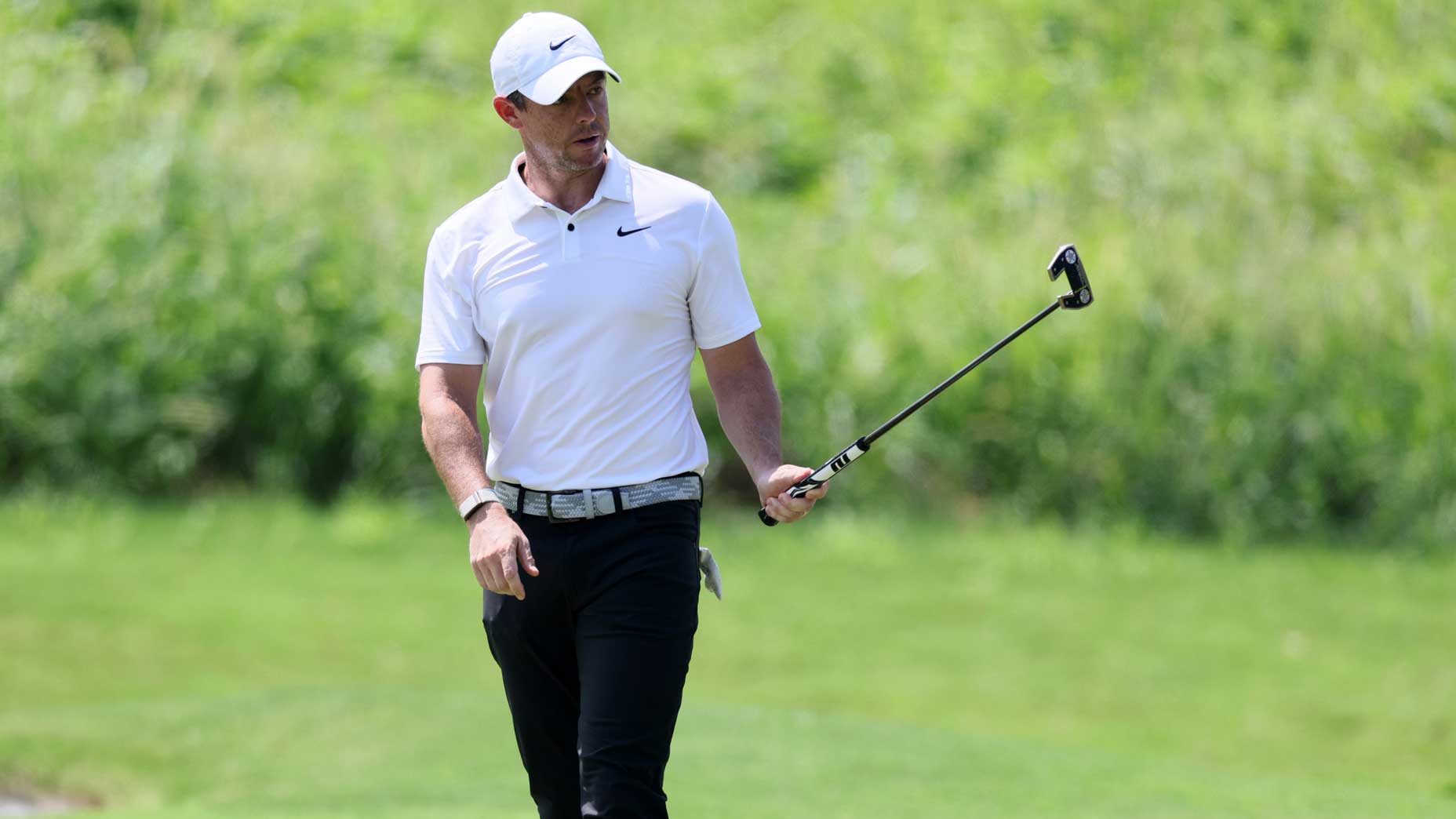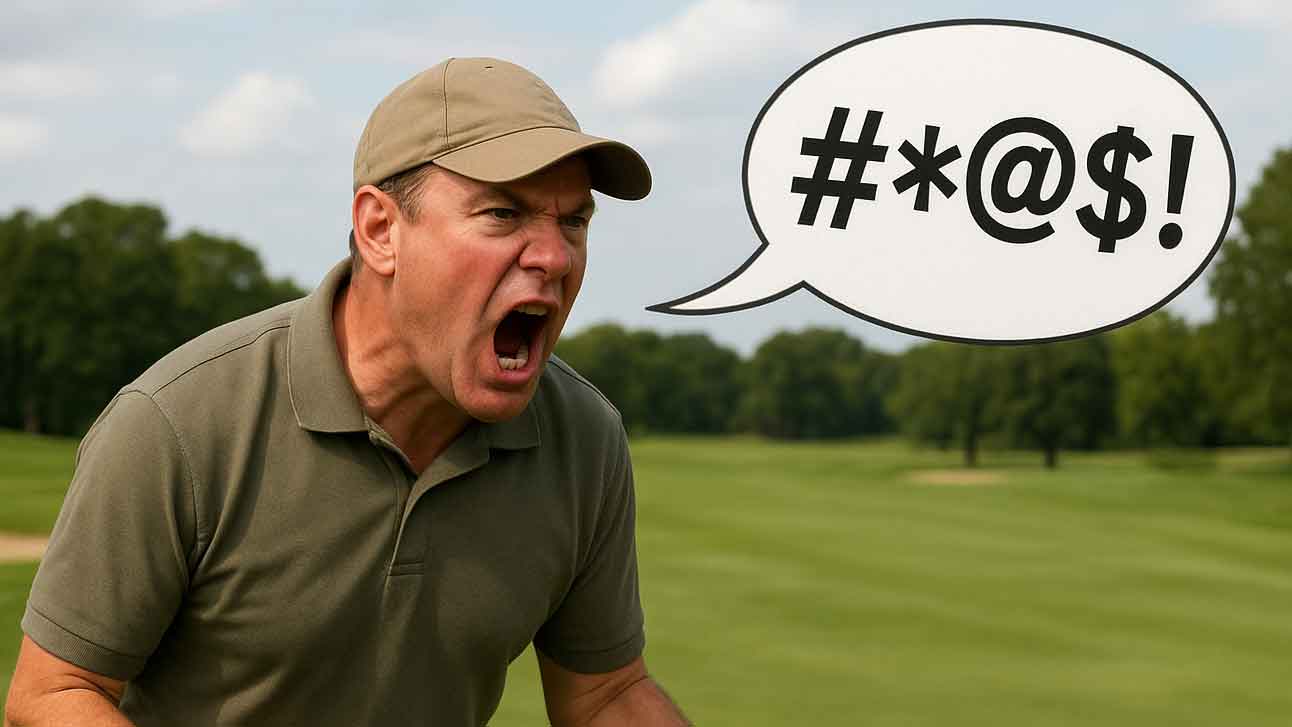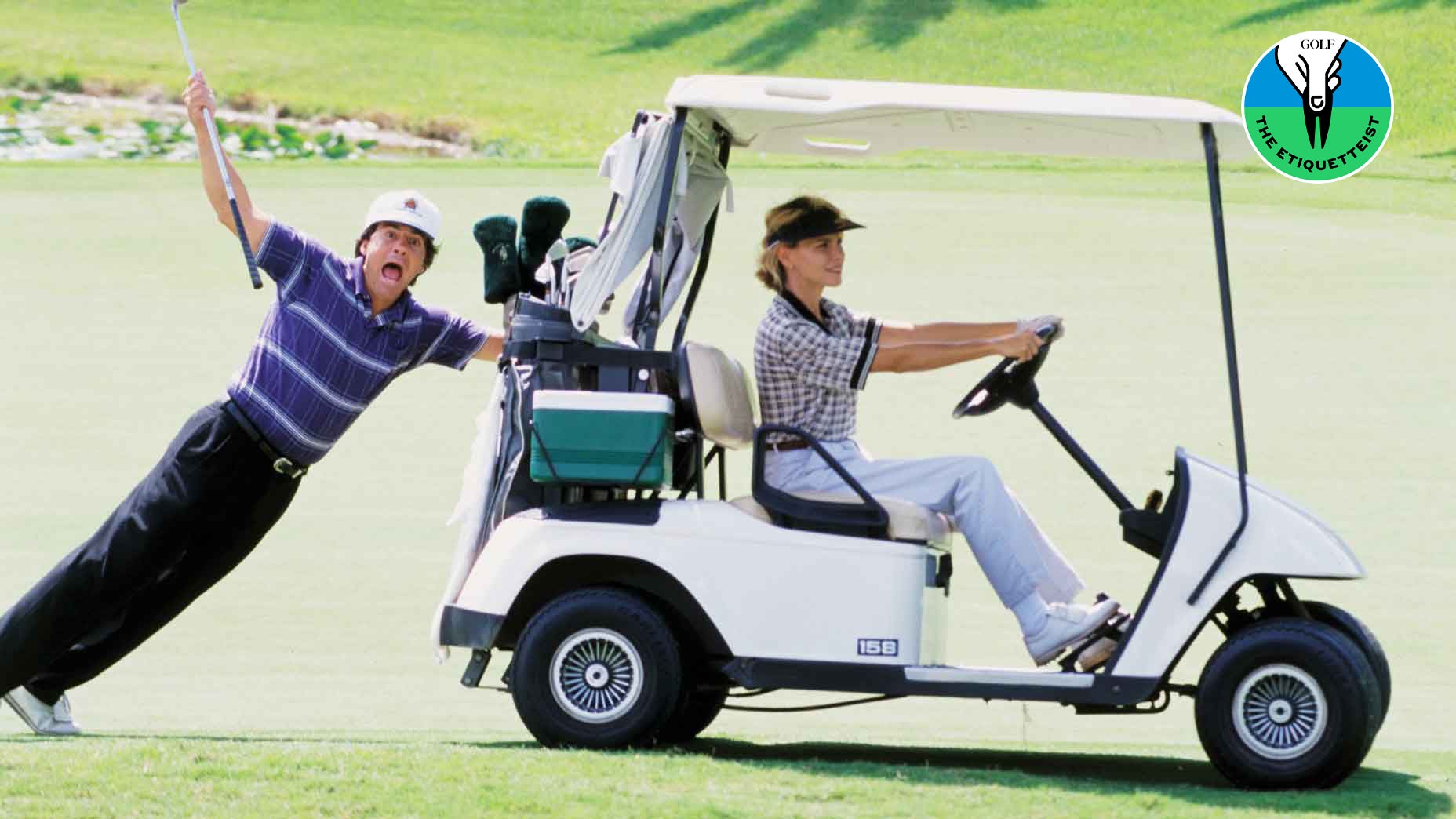Paul from South Carolina writes:
I recently got paired with a terrible caddie. Not just terrible at reads and yardages. Just a sour personality all around, snide and condescending in our conversations, sighing audibly at my bad shots. At the end of 18, I gave him the base fee without a tip. But really what I wanted to do was fire him mid-round. Would I have had the right to do that?
Dear Paul,
Bad caddies are like unpleasant playing partners: We don’t come across them often, but they stand out in memory when we do.
Some years ago, for an early morning round at a well-known course in Scotland, the Etiquetteist was assigned a looper who was woefully ill-equipped to fulfill his duties. He reeked of booze, drunkenly slurred his words and complained of back pain that he said made it difficult for him to carry clubs. A few holes in, he was lagging behind the group so badly that the Etiquetteist offered to tote the bag for him. The caddie accepted. And so it went for the rest of the round, with the Etiquetteist hauling his own bag and the addled caddie dawdling alongside, taking breaks on every tee box to lie down, groan and stretch his back.
Why did the Etiquetteist take part in this absurd parade? Curiosity, mostly, an innate interest in the quirks and comedy of the human carnival, and a compulsion to see how this particular interlude in it might play out. Call it an occupational hazard. Should the Etiquetteist have dismissed his caddie instead? Possibly. Would the rules of etiquette allowed him to do so? Absolutely.
Like countless other arrangements, caddying is a fee-for-service job. If you’re not satisfied with the service you’re receiving, it’s within your right end the deal. Tell your caddie firmly but politely that you would like to decouple, pay them for their time (this could be a pro-rated fee based on the number of holes you’ve played together) and send them on their way.
It’s worth emphasizing that while this approach is your right, it should be used sparingly, only in the most egregious cases, when the caddie is being outright rude or unprofessional. A few misread putts and bad yardages aren’t grounds for dismissal. If you don’t like the advice your caddie is providing, simply make it clear that you’d rather handle the green-reading and club-selection on your own.
Why Rory McIlroy sent his caddie to a Memphis golf shop in the middle of an eventBy: Jack Hirsh
Other caveats apply as well. At some courses, caddies are required. In those cases, it’s on you to communicate with the pro shop or caddiemaster to make sure a replacement is available. If there are no fill-ins, you’re out of luck. You and your looper are stuck together for the rest of the round, like partners in a dysfunctional marriage.
Private clubs introduce yet another variable. At some especially stuffy places, it is not unheard of for caddies to adopt the snobbishness of the membership and act as if they’re doing guests a favor. As a guest at such a club, that can be annoying. But your hands are somewhat tied. Any dismissal of a caddie should be handled by your host, who may not notice your displeasure with your looper — meaning it would be on you to bring the matter to their attention. That’s a potentially awkward conversation. And unless your host is a close friend, you’re probably better off biting your tongue. Being a polite guest takes precedence.
The good news is that bad caddies are the exception, not the rule. Far more common are bad players who blame caddies for their own failings. Such people are objectionable, and while they can’t technically be “fired” (their caddie, of course, might decide to quit), rest assured a much worse fate awaits them in the next life, where they are destined to spend eternity missing easy putts with no one to blame but themselves.











